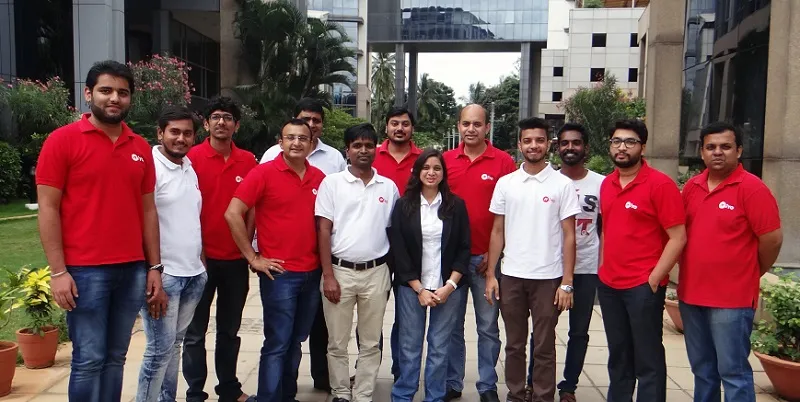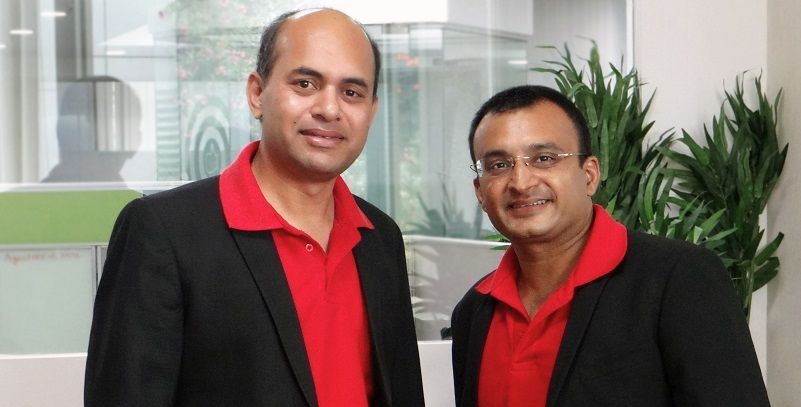This startup wants to give back up to Rs 25,000 cr to salaried Indians
After spending more than 10 years in banking firms like Standard Chartered, ING and Kotak, Vinay Bagri wanted to take a leap of faith and enter the daring world of startups. That’s when he met Virender Bisht through a common friend in Bengaluru.
In his vast 16 years of experience, Virender had worked with the mobile payments side of MakeMyTrip and was Chief Technology Officer at mobile payments company MobiKwik, instrumental in growing the company from two to 20 million users. Having worked with the salaried segment for so long, Vinay knew exactly what he wanted to build, while Virender’s knowledge of the space helped him understand the execution bit.
Hence, the chemistry worked and the duo kicked off operations last October with NiYO.

NiYO beginnings
Starting with the vision to introduce better cash flows to the salaried segment, NiYO works with the employer to carve out the employee's cost-to-company (CTC). Vinay tells us that there are as many as 22 tax-saving items for individuals in the salaried segment.
These tax-saving allowances are then integrated with an individual’s CTC and then disbursed to the employee. This could be medical, entertainment or food expenses provided by the employer, usually exempted from the tax bracket.
Hence, the firm works with three stakeholders: the employer, employee and the government. Recently partnered with YES Bank, NiYO has integrated their solution with the bank to roll out a multi-pocket card, an app and a digital account comprising multiple wallets.
So, how does it work?
While crediting salary, the corporate makes bifurcations, crediting the allowance money involving flexi-benefits (non-taxable allowances) to the YES Bank account. The money then gets further bifurcated in other smaller digital wallets based on the promised sum by the employer for a particular allowance. Through this, the firm removes the hassle of submitting bills and cost sheets, making the process more compliant. Also, the digital receipts already being stored at their cloud makes the process even more transparent.
Employers can also choose to lock the wallet or make the smaller wallets more flexible for their employees. Let’s say an employer allocates Rs 4,000 for medical benefits and food expenses each. These amounts can be used for only those certain payments in a locked wallet. While in case of a flexi-wallet the employees are free to use the amount as they wish to.
In the near future, the consumer app would help employees transfer their personal money to their flexi-benefit account, allowing users to switch off other wallets when making a personal payment.
While tapping on only 11 of the 22 tax-saving components, the firm also plans to enter the tax advisory segment, introducing other components. This may include mutual funds and other investment products. However, the firm is still contemplating whether they would like to partner with affiliates or do it themselves.
According to Vinay, the platform would evolve to a point where the user just needs to swipe, while the tax savings will be taken care of by the platform. He adds,
Most of the employees don’t even know that a large part of their salary can be saved from taxation. For the longest time, they remain clueless. NiYO wants to change this. According to government data, there are 30 million salaried employees in India. Further, only 25 million really pay their taxes through direct tax instruments. Our platform can help these Indians save up till Rs 10,000 in taxes, giving us, Rs 25,000 crore worth of an addressable market to go after.
Treading the roadmap
For the first six months, the focus for NiYO is to stabilise the flexi-benefit puzzle before making product advancements. In the next one year, the firm plans to add tax saving products to their platform, leveraging the power of UPI payments and Bharat Bill Payment System. However, there is not much need for payments to be integrated to the platform.
At present, NiYO has partnered with 20 B2B businesses, from startups to multinationals. Distributing close to 2,000 cards, the 20-member team claims to be seeing daily transactions worth Rs 1,00,000 on its platform. By the end of this fiscal year, the firm is looking to see a 15x growth in their traction leading to 300 B2B partnerships, with 30,000 flexi-benefit cards in circulation.
In July, NiYO received $1 million in investments from seed-stage venture fund Prime Venture Partners. It was also a part of the Oracle’s first batch of accelerator startups, which helped the startup understand the nuances of building an HRM solution.

What the market says?
There are multiple expense management cards similar to NiYO's. In the US, there are multiple brands handling the problem of expense management for corporates of the likes of Bento, dash (for travel expenses) and PEX.
Happay, also a Prime Venture Partner portfolio company, specialises in the same. It recently launched India's first-ever digital marketing expense card. However, NiYO seems to be focussed on the consumers more, with the future variations of the product aiming to help them by saving taxes.
The conventional tax-filing startups are also not shying away from entering tax savings and benefits space, with startups like Workzippy working towards this direction. Therefore, there seems to be some interesting line-up of products rolling out for the consumer domain, with products around taxes (from filing to saving) becoming a hot segment in the fintech space currently.
Website: www.goniyo.com







![[Weekly funding roundup April 20-26] VC investment dips as startups resort to debt capital](https://images.yourstory.com/cs/2/220356402d6d11e9aa979329348d4c3e/funding-lead-image-1669386008401.jpg)

![[Funding alert] Fintech startup Junio raises $6M in Pre-Series A round led by NB Ventures](https://images.yourstory.com/cs/2/ba9e8080834311ec9e7e95cb06cf6856/Juniofinal-1646375237755.png)

